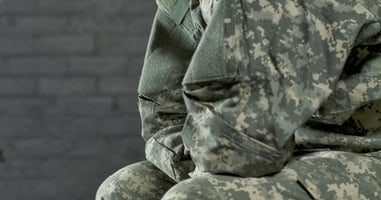Only about half of U.S. veterans who served in Iraq or Afghanistan seek care from the Veterans...
Senators Hear Testimony on MH Care and Suicide Prevention for Veterans
 |
“When people are hurting, they don’t want to wait to get help,” stressed committee chair Sen. Bernie Sanders (I-Vt.), who then asked how the $5 billion authorized for hiring additional clinicians was being spent. Those funds were not specifically allocated for mental health care providers, replied psychiatrist Harold Kudler, M.D. (above, right), chief mental health services consultant for the VHA. However, the agency was nevertheless allocated a share of those funds to recruit more providers, increase points of access, and test new modes of outreach in rural areas.
Still other avenues could be explored in the effort to reduce the number of veterans who die by suicide, said psychiatrist Elspeth Cameron Ritchie, M.D., M.P.H., (above, left), a retired Army colonel who is now chief clinical officer of the Washington, D.C., Department of Behavioral Health and a member of an Institute of Medicine panel that studied the effectiveness of treatments for posttraumatic stress disorder.
The VHA should, for example, conduct more research to understand which of its patients are at increased risk for suicide, Ritchie said. Service members also should be screened with closer attention to specific tasks they performed while deployed, as well as for any toxic exposures—like Agent Orange or the antimalarial drug mefloquine—which might produce symptoms of psychiatric illness or increased suicide risk.
The testimony was presented as the Senate considered the Clay Hunt SAV [Suicide Prevention for American Veterans] Act, which includes measures for suicide prevention and medical school loan forgiveness for psychiatrists and certain other practitioners who join the VHA.
For more about mental health issues that affect veterans and the findings of the Institute of Medicine report, see the Psychiatric News article “Pentagon, VA Lack Data to Assess PTSD Care Systems.”
(Image: Aaron Levin/Psychiatric News)





